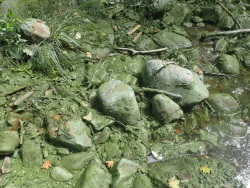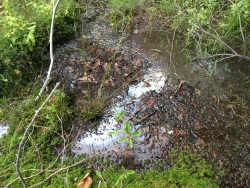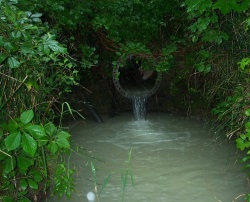Stressor Identification and Causal Assessment
There are times when water quality assessments lead to the conclusion that a water is not meeting state water quality goals, but the cause is not known. In order to determine the cause of impairment, additional monitoring may be needed.
Stressor identification involves defining and listing possible sources of pollution, evaluating existing data, designing a sampling program to bracket the sources if additional data are needed, characterizing the causes, and finally, identifying the most probable cause.



Phosphorus Impacts on Aquatic Life
Monitoring Program staff are at the forefront of determining the extent and nature of phosphorus impacts on rivers and streams in Connecticut. Phosphorus is a nutrient that contributes to acceleration of aquatic plant growth in water bodies. This excessive plant growth eventually causes harmful effects on water bodies, such as detrimental shifts in biological communities, fish kills, and reduction of dissolved oxygen and pH values. For more information on the Monitoring Group's stressor identification and causal assessment work related to phosphorus, visit the Aquatic Life Impacts of Phosphorus Research webpage.
To Learn More Contact:
Water Monitoring and Assessment Program
Bureau of Water Protection and Land Reuse
mary.becker@ct.gov

